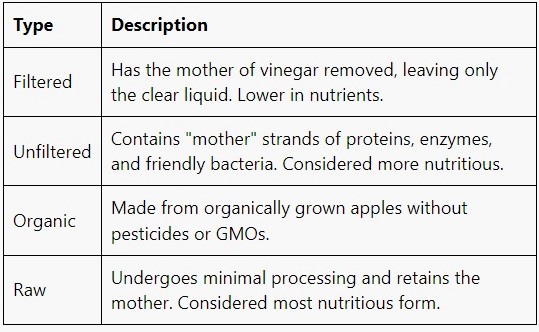With ACV Supercharge Your Nights


Apple cider vinegar (ACV) has become increasingly popular for its purported health benefits in recent years. While research is still ongoing, some preliminary studies have shown that ACV may help improve digestion, support weight loss efforts, and lower blood sugar levels among other things. In this blog post, we will take a closer look at how apple cider vinegar could potentially help promote better sleep.
What is Apple Cider Vinegar?
Apple cider vinegar is made through a fermentation process where the sugars in apple cider are transformed into acetic acid with the help of bacteria and yeast. The main active ingredient in ACV is acetic acid, giving it its distinctive sour taste. ACV also contains amino acids, vitamin B12, vitamin C, potassium and probiotics which have led some to believe it can provide various health benefits when consumed.
The most commonly found types of apple cider vinegar available are:

Unfiltered “raw” apple cider vinegar containing the mother element is often recommended for maximum health benefits. The essential components in ACV are believed to affect processes in the body that could potentially help promote better sleep.
How ACV May Help Improve Sleep
There are a few key ways that apple cider vinegar may contribute to better, more restful sleep:
Regulating Blood Sugar
Drinking ACV before meals has been shown to help slow the rise of blood sugar after eating in some studies. Stable blood sugar levels are important for quality sleep as spikes and crashes can disrupt circadian rhythms and promote wakefulness. The acetic acid in ACV delays stomach emptying so you feel full for longer, preventing urges to snack in the night that could interrupt sleep.
Improving digestion
The probiotics in ACV support the growth of healthy gut bacteria which is imperative for digestion. Poor digestion caused by an imbalance of gut flora has been linked to disrupted sleep patterns. When your belly aches or you feel bloated, it’s harder to switch off your thoughts and relax into sleep. ACV’s ability to improve digestion may alleviate those uncomfortable sensations that prevent nodding off.
Reducing Stress and Anxiety
Some research suggests that the antioxidants in ACV may work as a natural stress reliever. Excessive stress is a major sleep stealer as it raises cortisol levels and stimulates the fight-or-flight response long after the stressor has passed. ACV’s relaxing effect calms both mind and body, helping you unwind and drift off more easily at bedtime. Its high potassium content also counteracts the negative effects of stress on cardiovascular activity during the night.
Aiding Weight Loss
Being overweight or obese has been linked to poor quality sleep and shorter duration. Losing even a modest amount of weight through a calorie-controlled diet and regular exercise can significantly improve sleep quality. Some studies indicate that ACV may aid weight loss efforts by reducing appetite and belly fat. This, in turn, decreases sleep disturbances brought on by things like snoring or obstructive sleep apnea.
The mechanisms through which ACV is believed to support weight loss include:
– Slowing gastric emptying to make you feel full for longer
– Increasing satiety hormone production like PYY and GLP-1
– Promoting fat oxidation through vinegar’s acetic acid content
– Suppressing fat cell formation through its interaction with certain enzymes

Using ACV for Better Sleep – What Does the Research Say?
While more extensive research is still needed, some preliminary studies offer promising signs that ACV may enhance sleep:
– In a Japanese study, volunteers who took ACV before bedtime reported falling asleep an average of 4.5 minutes faster than those without ACV. They also rated their sleep quality as significantly higher.
– In another small trial, obese individuals who consumed 2 tablespoons of ACV daily for 12 weeks lost an average of 1-2 pounds and improved their risk factors for heart disease and metabolic syndrome. Better overall health likely translated to enhanced sleep too.
– Mice supplemented with acetic acid displayed reduced wakefulness and increased deep sleep durations. Researchers believe acetic acid promotes sleep by increasing the levels of adenosine, a natural somnogen (sleep-promoting) chemical in the brain.
– Test tube and animal research suggests ACV’s anti-inflammatory properties could alleviate inflammation linked to insomnia. Certain compounds in apple cider vinegar like chlorogenic acid have potent anti-inflammatory effects.
At this stage, the evidence for ACV as a sleep aid is promising but not conclusive due to small sample sizes and lack of large human trials. More research is still needed to validate apple cider vinegar’s sleep-enhancing capabilities. However, incorporating it as part of an overall healthy lifestyle likely won’t cause harm and may offer additional sleep benefits.
How to Use ACV for Better Sleep
If you’re interested in trying apple cider vinegar to improve sleep, here are some guidelines on how best to use it based on existing research:
– Dilute 1-2 tablespoons of ACV in a glass of water. Never drink it undiluted as it can damage tooth enamel. Consider mixing it with sparkling water or seltzer for flavor.
– Drink it 30 minutes before your evening meal to aid digestion and prevent blood sugar spikes later. This allows its effects to take hold before bedtime.
– Drink another glass of diluted ACV 30-60 minutes before bedtime to promote relaxation and sleep onset. Avoid citrus juices which can interfere with sleep.
– For maximum benefits, look for raw, unfiltered apple cider vinegar containing the “mother.” Avoid sneaking sips throughout the day as it’s meant for bedtime use.
– Follow a consistent sleep schedule where you get 7-8 hours of quality sleep per night to see effects. Don’t expect ACV to work as a magic bullet if you sleep erratically.
– Give it at least 2 weeks to notice any changes in sleep quality or time taken to fall asleep. Effects are gradual as the body adjusts hormonally.
– Be mindful that ACV may interact with certain medications or acid reflux. Discuss use with your doctor before starting, especially if on any prescription meds.
– While promising, ACV should be seen as a complementary sleep aid rather than replacement for addressing underlying issues like stress, diet or exercise that disrupt slumber.
FAQs about Using ACV for Sleep
Here are answers to some frequently asked questions about using apple cider vinegar for better sleep:
Does ACV cause side effects if used as a sleep aid?
For the majority of healthy adults, ACV appears quite safe when diluted and used therapeutically before bed. However, high doses or prolonged daily intake could potentially irritate the esophagus over time in sensitive individuals. Start with small amounts and monitor any gastric discomfort. Discuss with your doctor if suffering from acid reflux disease.
Can I drink ACV during the day too?
While it’s safe to have ACV in moderation during the day, its benefits for sleep appear optimized when consumed shortly before bedtime. Sipping it continuously may disrupt the body’s natural digestive process. Focus intake within the 1-2 hour window before sleeping for best results.
Will ACV help if I have insomnia from stress/anxiety?
Preliminary studies point towards ACV having anti-stress and relaxation benefits. However, serious ongoing insomnia from stress/anxiety may require additional remedies to get full relief. Adding mild exercise, meditation, avoiding stimulants before bed, and seeking medical help if issues persist are also important alongside trying ACV as a natural supplement.
How long will it take for ACV to start improving my sleep?
Most people report subtle positive effects within the first 2 weeks of daily ACV consumption before bed. However, allow 4-6 weeks for noticeable changes as it works to balance your body chemistry over time. Stick with consistent guidelines to see full potential aid for better quality sleep with ACV.
Can kids/teenagers use ACV as a sleep aid too?
While ACV appears safe when diluted for adults, there is very limited research on its effects on the developing bodies of children and teenagers. It’s best to discuss potential supplemental use of ACV for sleep issues with your pediatrician before giving it to minors, especially on an ongoing basis. Natural sleep hygiene techniques are generally the first approach for younger sleep problems.
Should You Try ACV for Better Sleep?
In summary, preliminary research shows promise that apple cider vinegar could help promote better quality sleep through its effects on blood sugar regulation, digestion, stress response and weight control. When consumed diluted in water 30-60 minutes before bedtime, ACV appears to be a generally well-tolerated natural sleep aid for adults.
However, more extensive human trials are still needed to fully validate its sleep-enhancing properties. At this stage, it may provide additional benefits as part of an overall healthy lifestyle focused on sleep hygiene, stress management, diet and exercise – but shouldn’t be relied upon as a single solution for chronic.





